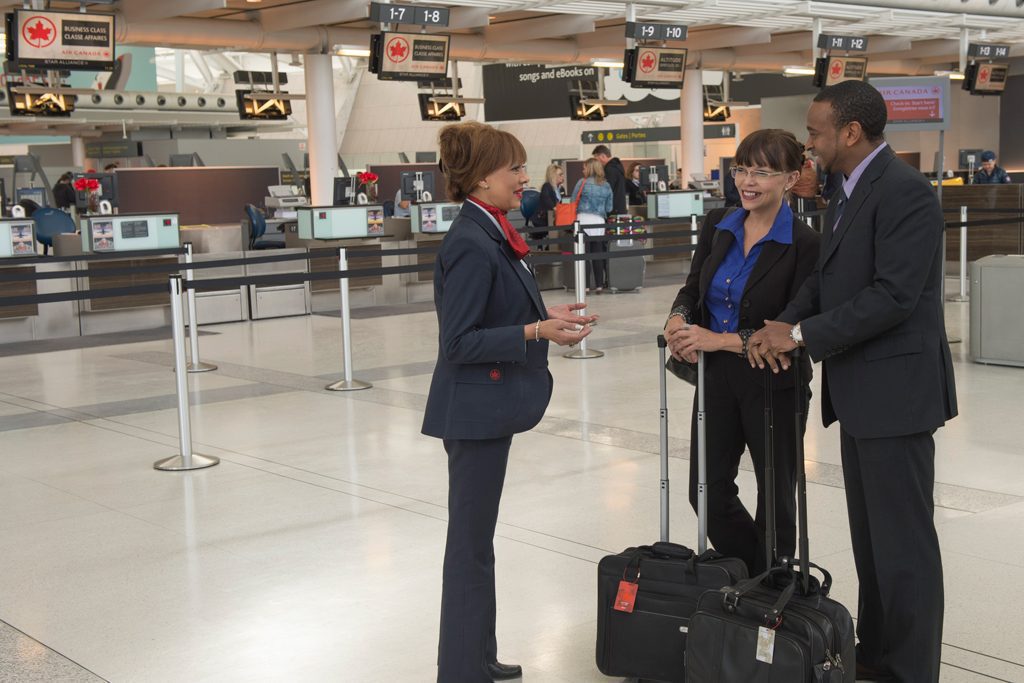Air Canada has decided to move from its 30-year-old, built-in-house reservation system to the Altéa Suite offered by Amadeus, the Madrid-based travel technology giant.
The move is another commercial victory in the Americas for Amadeus, which earlier this year moved the international reservations system of Southwest Airlines from a platform run by Texas-based Sabre to an Amadeus-powered platform.
In perhaps added poignancy, Sabre’s new CEO Sean Menke was Air Canada’s chief commercial officer from 2005 to 2007. But Sabre’s passenger service system, SabreSonic, did not grab the prize in this instance.
More importantly, Amadeus, which had been stymied in breaking into North America as an airline reservation system provider until its Southwest deal, is seeing global momentum in sales of its passenger services system. These systems do everything from handling passenger reservations systems and processing sales of preferred seats to scheduling flight crew.
Since 2010, Altea has doubled the volume of passengers it handles and now has a 45 percent global market share, compared to Sabre’s 20 percent share, according to estimates by investment bank analysts at Credit Suisse.
As recently as 2013, Air Canada’s director of global product distribution, Keith Wallis, was saying that the airline was dissatisfied with the passenger services system offerings of Amadeus and Sabre. Wallis gave a presentation at the time with slides showing why the tech company’s products didn’t meet the airline’s business goals of flexibility in how it wants to sell its products.
What’s changed? Duncan Bureau, Air Canada’s vice president of global sales, said, “Our view is we want our product on as many shelves as possible at the right economics.”
He noted the company is extending its distribution agreement with Amadeus, as well. Air Canada does not have a distribution deal with Sabre, though it does with Travelport.
A decade ago, Air Canada pulled out of the global distribution systems like Amadeus and Sabre in a stated frustration with how they were “commoditizing” its products.
Bureau said, “We’re in a very different position than we were 10 years ago, as we’ve since more than doubled in size and our international markets have grown significantly.”
He said Altea offers more flexible merchandizing than its in-house system allowed. “Today, an agent would have to toggle out of our in-house PSS to get access to some of our ancillary revenue products, while with Altea all of our products will be available to the agent within the same workflow.”
Bureau said his carrier has added 50 destinations in recent years and doubled its wide-body fleet pointed at Asia Pacific markets where Amadeus has taken more market share than other reservation system providers have lately.
Ilia Kostov, senior vice president and chief commercial officer for airlines for Amadeus North America, said Altea excels at letting an airline communicate with the systems of its alliance partners. In Air Canada’s case, it is a Star Alliance partner with Lufthansa, which is also on the Altea system.
For example, if a flight disruption involving a passenger on an Air Canada and an alliance partner needs to be rebooked, in today’s system there is a lot of manual work that agents have to do; only Air Canada would have clear information about the passenger’s trip. In the future, Amadeus says its Altea system would enable the agents from either Air Canada or Lufthansa to help rebook the passenger.
Amadeus’ airline reservations business hasn’t been all been roses. In 2011, Amadeus lost a contract to move United from its existing system to Altea after the airline decided it wasn’t sufficiently impressed with the robustness of the platform.
Separately, in late September 2017, Amadeus’s Altea system had network problems for several minutes worldwide that disrupted some of its systems and led to flight delays and other hassles for up to 30 minutes. It was triggered by an issue in a faulty switch during network maintenance, the company said.
Other systems, such as SabreSonic, have experienced plenty of — and more protracted — outages.
Amadeus competes against multiple players in the $11 billion a year passenger services system market, though not all have continued to invest as intensively in serving larger commercial airlines as Amadeus and leading rival Sabre have.
Players include Mercator and Unisys. SITA recently introduced a new passenger services system, but it has had only tiny airlines try it. HP used to be a large player but now mainly provides maintenance for legacy systems. IBS Software has some traction in India. Radixx has dabbled in the market. Travelsky Technology is large in China.
Many airlines also use in-house systems that need converting to keep up with today’s technology demands.
While Air Canada is expected to board only 45 million passengers this year, every deal counts.
The largest airlines up for grabs next, according to experts, are All Nippon Airways (ANA) and Turkish Airlines. Their business will be fought for intensely.
Subscribe to Skift Pro to get unlimited access to stories like these
{{monthly_count}} of {{monthly_limit}} Free Stories Read
Subscribe NowAlready a member? Sign in here
Subscribe to Skift Pro to get unlimited access to stories like these
Your story count resets on {{monthly_reset}}
Already a member? Sign in here
Subscribe to Skift Pro to get unlimited access to stories like these
Already a member? Sign in here
